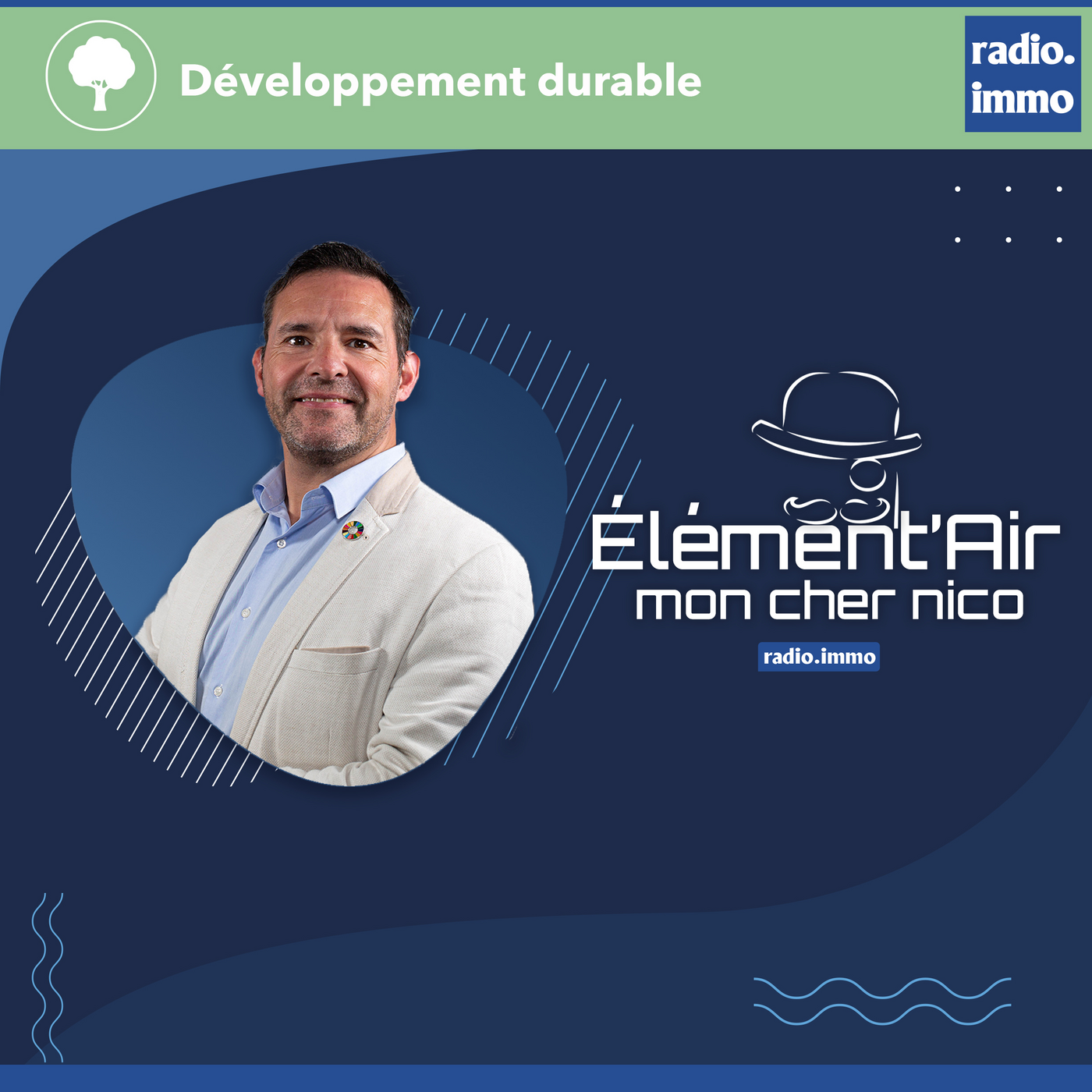Réglement’air My Dear Nico !
On the occasion of the tightening of regulations on Air Quality in “public-establishment” (ERP: Etablissement Recevant du Public) which came into force on January 1, 2023, the Evertree team went to meet air quality specialist Nicolas Blondet, the author of the book “La qualité de l’air pour les Nuls” who has been hosting the podcast “Element’Air… Mon Cher Nico” on www.Radio-immo.fr.
Hello Nicolas, you’re now a recognized specialist in IAQ (Indoor Air Quality). Can you tell us what drew you to this subject?
I’ve been involved in air quality for over 20 years. Firstly, for personal reasons: as a former firefighter, I damaged my lungs in an accident. Then my professional career led me to work in ventilation and air treatment systems. 5 years ago, I also contributed to the roll-out of the 1st indoor air quality label for new housing in France. Today, what’s dearest to my heart is to make the subject of air, by definition invisible, visible and accessible to as many people as possible. And to talk about it in a positive and simple way, not a simplistic one…
Could you give us an overview of indoor air quality in France today?
We know that indoor air is 8 times more polluted than outdoor air. And we can say that 100% of French homes have polluted air, but polluted doesn’t always mean dangerous. In the majority of cases, the pollution threshold is tolerable and does not exceed guide values. The level of CO2 in the air (that which we exhale) is a marker of confinement: if it is high, it indicates that the air is not circulating. In confined air, sources of pollution accumulate. They can be linked to human activity: VOCs emanate from cooking, cleaning, lit candles or diffused essential oils, cigarettes and vaporizers… Another insidious source is the packaging and cardboard we use to make all our purchases on the Internet. All too often, we turn our homes into product storage centers. Finally, building materials and furniture also release formaldehyde. And as buildings become increasingly airtight for thermal insulation, we need to take care to ventilate, filter, air out and, as a last resort if really necessary, purify the air. We’ll never do better than new air from outside!

Why are IAQ regulations changing in France?
Today, health organizations, starting with the Haut Conseil de Santé Publique, are being listened to more by our institutions about the health risks associated with IAQ. COVID was a trigger, because it made us all aware that air can be a vector for viruses. A carrier of viruses, but also of pollutants, which is why vigilance on this subject is growing. Especially as France is not ahead of the game: countries such as Belgium, Germany and the Nordic countries are more dynamic in this area. In France, for example, only 15% of schools have mechanical ventilation, which is the most efficient way of renewing air, and a variety of systems exist, including insufflation ventilation, which is really relevant (with permanent measurement of CO2, among other things) and energy-efficient for improving the air in our homes, living spaces, nurseries, offices, schools…
So, let’s talk about schools. Can you tell us more about the IAQ measures that will become mandatory from January 1, 2023 in ERP (crèches, elementary school, middle schools and high schools)?
Indeed, at the initiative of the Ministries of Health and Ecological Transition, two new decrees are applicable from January 1, 2023 in these establishments that receive a sensitive public. The 4th National Health and Environment Plan has been reinforced by a mechanism that increases the frequency of the required inspections – previously only every 7 years.
The new system is based on an annual assessment of building ventilation systems. It also calls for regular self-diagnosis of IAQ – at least every 4 years – focusing on sources of pollutant emissions, notably via site materials and equipment.
A campaign to measure regulatory pollutants (formaldehyde, benzene, CO2) will also be carried out by an accredited organization at each critical stage in the life of the building.
Lastly, an action plan must be drawn up no later than 4 years after the decree comes into force, and then regularly updated to implement corrective IAQ measures.
Guide values have also been reconsidered: they have been lowered from 30 to 10 micrograms per m3 for formaldehyde and from 5 to 2 micrograms per m3 for benzene. Not bad for a 1st stage.
What kind of action can schools take to improve their IAQ?
They can pay close attention to the choice of furniture and the materials they are made of, as well as the materials they use (chalk, pens, felt-tips, markers, etc.). The same goes for cleaning products and good cleaning practices: ventilate well (and choose systems that are relevant and effective for IAQ), air out, clean classrooms in the evening rather than in the morning before pupils arrive. Purchasing managers, as well as technical and operating departments, need to know how to decipher the FDES (Fiche de Déclaration Environnementale et Sanitaire) sheets for each product, to get things moving in the right direction.
This website has been designed to reduce impact on the environment.